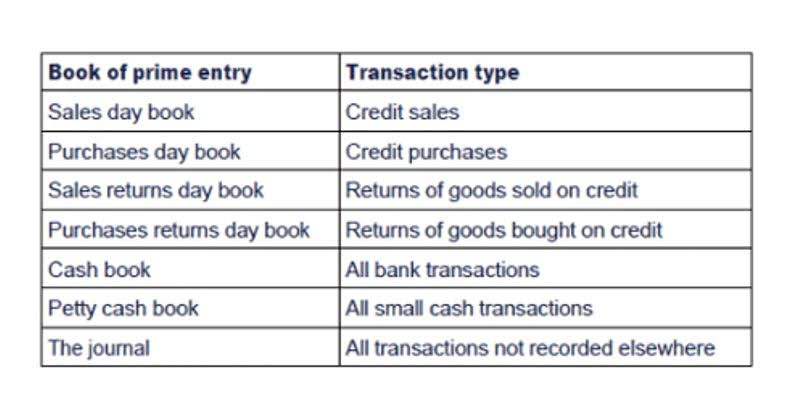5 Steps to Prevent Payroll Fraud in Your Small Business
Content

The security features prevent any unauthorized access to the employee data. Payroll fraud cases can be considerably decreased with adequate payroll systems and efficient oversight. The solutions given below will make sure that only verified workers are paid and will spot any irregularities in the payroll system. Additionally, they might gain access to the payroll system to boost their hourly pay rates and misrepresent their salaries. PAYE fraud is the falsification of information submitted to HMRC in order to avoid paying Pay As You Earn tax. A company can claim that it is paying an employee, but actually embezzles all or some of that wage.

If this is what you do, make sure the timesheets are completed and reviewed on schedule so that the manager doesn’t forget how many hours a certain employee worked for the shift. This process will help to ensure that no one person has too much control over the process and that all payments are properly authorized. You should have oversight in the form of the requirement for a top executive’s permission for commission checks and overtime payments. Employers place their employees in several categories based on the number of hours they put in, how they interact with the business, and other considerations. For instance, you might classify someone as an independent contractor, a full-time worker, or a part-time worker.
What is Payroll Fraud and How to Prevent It
They are a made up person who has been created via payroll to divert funds. A ghost employee can also be someone who once actually did work for you and has left your company, but was never officially terminated in the payroll system. These forms of payroll fraud depend upon lax accounting and oversight procedures. Businesses should maintain and strictly adhere to thorough accounting and anti-fraud policies at all times. If an employee requests advanced payment and doesn’t pay it back, this is considered payroll fraud.
- Patrick has been advising on tax for over 35 years, first as a solicitor and latterly as a barrister.
- Funding is provided through payroll taxes levied by federal and state governments on a portion of wages paid by covered employers.
- Despite the physical appearance of employees at the workplace, the payroll of those employees is auto-circulating monthly.
- With overtime at the time-and-a-half rate of $22.50, that’s an extra $45 a week, which could add up to $2,340 a year.
It’s imperative that your organization vets a high-quality payroll service to do this, and that you audit their performance as well to ensure they aren’t abusing the payroll system. However, relying on a payroll service provider can significantly reduce the risk of insiders committing payroll fraud. An employer who commits payroll fraud may face audits/investigations, civil monetary fines, and imprisonment. Additionally, they might face other payroll fraud punishments, such as having to make repayments to the IRS.
Life @ PayNW
There are actually many ways payroll fraud can be committed, making it difficult for organizations to fully protect against—and prevent—payroll fraud. An individual (or group of individuals) illicitly gains funds from an organization’s payroll processing system. Most commonly, this is done by employees who manipulate the payroll system to their advantage to earn more money what is payroll fraud than they are entitled to or inflate their hours—and then cover their tracks. Payroll fraud can take many different forms and have varying degrees of severity. Whether or not payroll fraud is a serious felony is also determined by the laws of the jurisdiction where the crime was committed. In general, the more money a fraudster steals, the harsher the legal repercussions.
Every organization should provide an employee handbook which conveys zero-tolerance policies related to payroll and other fraudulent activities. Among those, the common types of payroll fraud are buddy punching, disappearing between a punch in and out, timesheet padding, and more. An IP PIN is a six-digit number that prevents federal tax returns from being filed in the names of identity https://www.bookstime.com/articles/capital-stock theft victims. The IP PIN is a voluntary program open to any taxpayers who can verify their identities. Because unemployment benefits are taxable income, state governments issue the form to recipients and the IRS to report taxable compensation received and any withholding in box 1. The urgent need to distribute benefits made it difficult for states to verify information thoroughly.
Common payroll frauds and schemes
It’s the illegal practice of designating an employee as a “1099 worker” or an independent contractor. In these instances the company may be misclassifying a W-2 employee as a 1099 employee. In the State of California, worker misclassification will cost an organization $25,000 per occurrence plus back payroll taxes and penalties. This type of fraud is carried out by employers, sometimes accidentally, but often deliberately. It occurs when employers classify a full-time, salaried employee as an independent contractor (“1099 worker”) to avoid paying payroll taxes and workers compensation insurance.
Employees commit expense reimbursement fraud when they claim reimbursement for fictitious expenses or when they inflate actual expenses when submitting them for reimbursement. Most importantly, you’ll sleep well at night knowing that they don’t have to worry about the IRS or State taxing authorities knocking on their door. In addition, this policy should be reviewed and updated regularly to ensure that it is up-to-date and effective. Your data will only be used within Patrick Cannon for processing you enquiry. Misclassifying staff not only has financial implications but is also against the law. For instance, IRS’ Employer’s Supplemental Tax Guide for worker classification guidelines severely penalizes workers for misclassification.
Workers’ compensation fraud
You might even consider auditing their sales to ensure they’ve earned all of their commissions. As with many other things, when it comes to payroll fraud, prevention is better than the cure. Getting into legal battles, contacting authorities, and attempting to recover stolen money can make for difficult—and expensive—situations. When you put measures to detect and mitigate fraud, you minimize the chances you’ll have to deal with a legal headache later on. Audits can be executed by internal staff, such as an accounting professional who doesn’t directly work in payroll or a company director or owner.
- So that employees become more aware of the risks and take appropriate actions to prevent fraud.
- The most passive type of fraud is when an employee requests an advance on his pay and then never pays it back.
- Modern payroll software has built-in features to detect any anomalous activity related to payroll records.
- You may be entitled to back compensation if your employer unlawfully withheld your wages.
- Other types of wage theft include illegal deductions, off-the-clock violations, and other practices.
Unfortunately, for many victims of payroll fraud, the offending behavior is not detected until significant sums of money are missing. Sometimes it can be years later when timesheet fraud or ghost employees are detected. By that time, the amount of payroll funds stolen can be in the thousands of dollars or in the hundreds of thousands as in the Boston Police case.
How to prevent payroll fraud
Sick leave fraud occurs when an employee claims sick pay from their company when they are not actually sick. As a small business owner, you can face serious penalties for misclassifying your workers. Therefore, it’s important to do some research to find out how to properly classify your employees. Refer to the IRS’ Employer’s Supplemental Tax Guide for worker classification guidelines, or fill out Form SS-8 to get the IRS’ own judgment.
- Strong oversight and controls are key to combatting payroll fraud and keeping your employees honest.
- When you think of stealing, you probably imagine shoplifting, robbing banks, and breaking into homes.
- In one case that I heard about, the bookkeeper was paying herself a duplicate paycheck through the name “XYZ” and having the money deposited in her checking account.
- However, payroll fraud is the toughest to detect because it’s often concealed.
- When an employee “punches in” for another employee, they both commit timesheet fraud.
